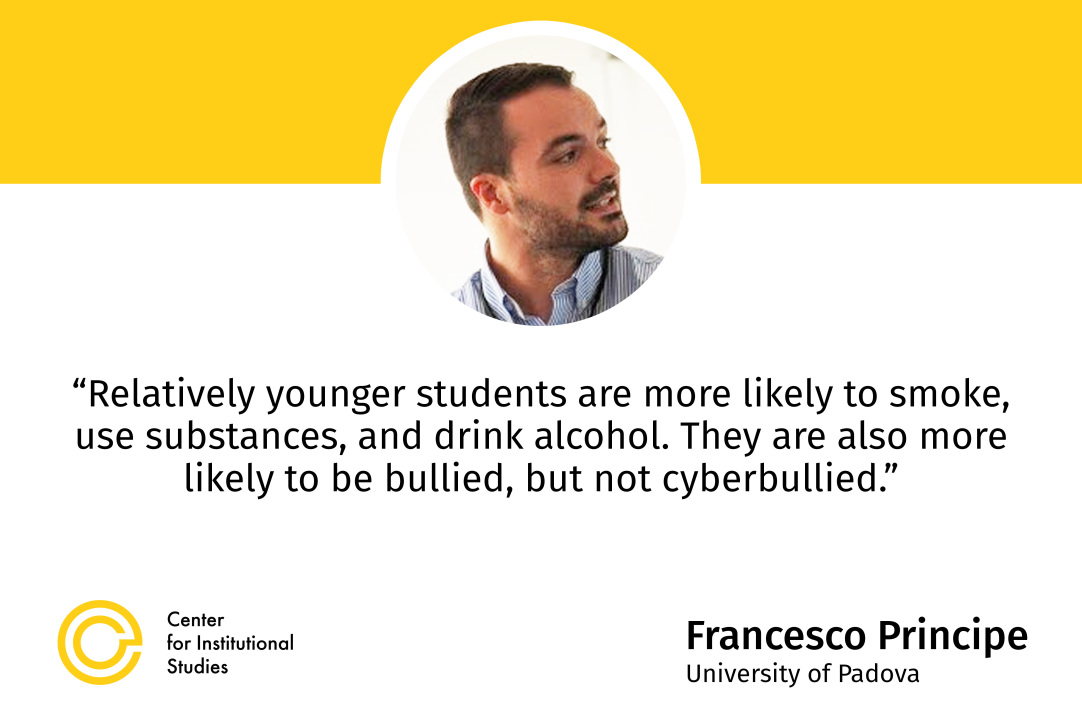CInSt Research Seminar "Too Much Too Young: Relative Age and Adolescent Risky Behaviours": Francesco Principe (University of Padova)
Welcome to watch the video of the seminar

Does classroom age composition affect risky behaviours? We use data from the “Health Behaviour in School Aged Children” international survey to answer this question. We explore a comprehensive set of outcomes representing risky behaviours of different types and adopt an IV strategy that leverages cross-country variations in cutoff dates for school eligibility to cope with the endogeneity of both relative and absolute age. We show that relatively younger students are more likely to smoke, use substances, and drink alcohol. However, we find evidence that relatively young students are more likely to be bullied, but not cyberbullied. These results highlight possible unintended consequences of students grouping policies and suggest relative age externalities as potential causal mechanism of class rank effects on risky behaviors. We additionally observe that the effect of relative age on use of substances does not vary substantially across countries with different laws to regulate possession. This result suggests that relative age effects on risky behaviors might impact youth criminal record too. Finally, mediation analyses show that self-efficacy is the most important indirect channel through which relative age operates on risky health behaviors.
Видео
